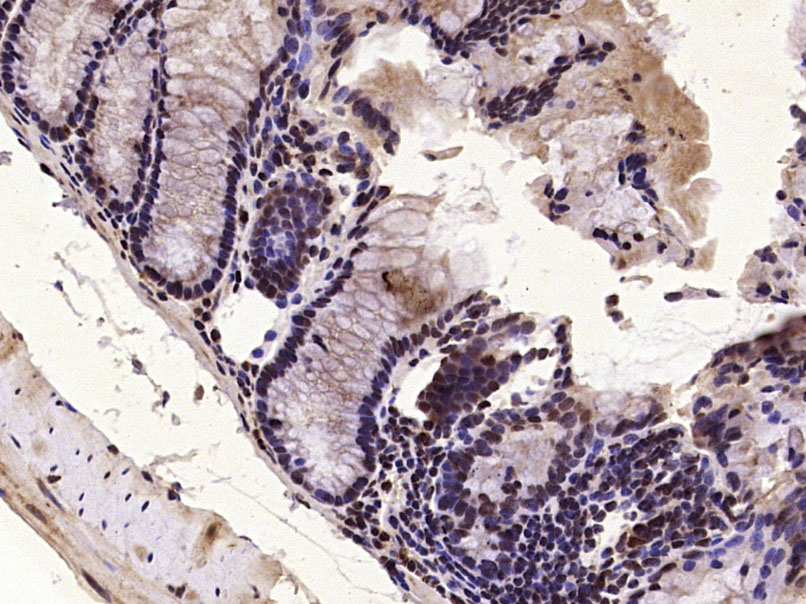![Mouse tissue extract (50 μg) was separated by 10% SDS-PAGE, and the membranes were blotted with DUSP1 antibody [N3C3] (GTX101229) diluted at 1:1000 and competitor's antibody (sc-1199) diluted at 1:200. The HRP-conjugated anti-rabbit IgG antibody (GTX213110-01) was used to detect the primary antibody. Mouse tissue extract (50 μg) was separated by 10% SDS-PAGE, and the membranes were blotted with DUSP1 antibody [N3C3] (GTX101229) diluted at 1:1000 and competitor's antibody (sc-1199) diluted at 1:200. The HRP-conjugated anti-rabbit IgG antibody (GTX213110-01) was used to detect the primary antibody.](https://www.genetex.com/upload/website/prouct_img/normal/GTX101229/GTX101229_40128_20170810_WB_M_liver_competitor_watermark_w_23060100_718.webp)
Mouse tissue extract (50 μg) was separated by 10% SDS-PAGE, and the membranes were blotted with DUSP1 antibody [N3C3] (GTX101229) diluted at 1:1000 and competitor's antibody (sc-1199) diluted at 1:200. The HRP-conjugated anti-rabbit IgG antibody (GTX213110-01) was used to detect the primary antibody.
DUSP1 antibody
GTX101229
ApplicationsWestern Blot
Product group Antibodies
ReactivityHuman, Mouse
TargetDUSP1
Overview
- SupplierGeneTex
- Product NameDUSP1 antibody
- Delivery Days Customer9
- Application Supplier NoteWB: 1:500-1:3000. *Optimal dilutions/concentrations should be determined by the researcher.Not tested in other applications.
- ApplicationsWestern Blot
- CertificationResearch Use Only
- ClonalityPolyclonal
- Concentration0.2 mg/ml
- ConjugateUnconjugated
- Gene ID1843
- Target nameDUSP1
- Target descriptiondual specificity phosphatase 1
- Target synonymsCL100, HVH1, MKP-1, MKP1, PTPN10, dual specificity protein phosphatase 1, CL 100, MAP kinase phosphatase 1, dual specificity protein phosphatase hVH1, mitogen-activated protein kinase phosphatase 1, protein-tyrosine phosphatase CL100, serine/threonine specific protein phosphatase
- HostRabbit
- IsotypeIgG
- Protein IDP28562
- Protein NameDual specificity protein phosphatase 1
- Scientific DescriptionThe expression of DUSP1 gene is induced in human skin fibroblasts by oxidative/heat stress and growth factors. It specifies a protein with structural features similar to members of the non-receptor-type protein-tyrosine phosphatase family, and which has significant amino-acid sequence similarity to a Tyr/Ser-protein phosphatase encoded by the late gene H1 of vaccinia virus. The bacterially expressed and purified DUSP1 protein has intrinsic phosphatase activity, and specifically inactivates mitogen-activated protein (MAP) kinase in vitro by the concomitant dephosphorylation of both its phosphothreonine and phosphotyrosine residues. Furthermore, it suppresses the activation of MAP kinase by oncogenic ras in extracts of Xenopus oocytes. Thus, DUSP1 may play an important role in the human cellular response to environmental stress as well as in the negative regulation of cellular proliferation. [provided by RefSeq]
- ReactivityHuman, Mouse
- Storage Instruction-20°C or -80°C,2°C to 8°C
- UNSPSC41116161








